- Home
- Academic Excellence
- Subject Information
- Literacy at CSGS
Literacy at CSGS
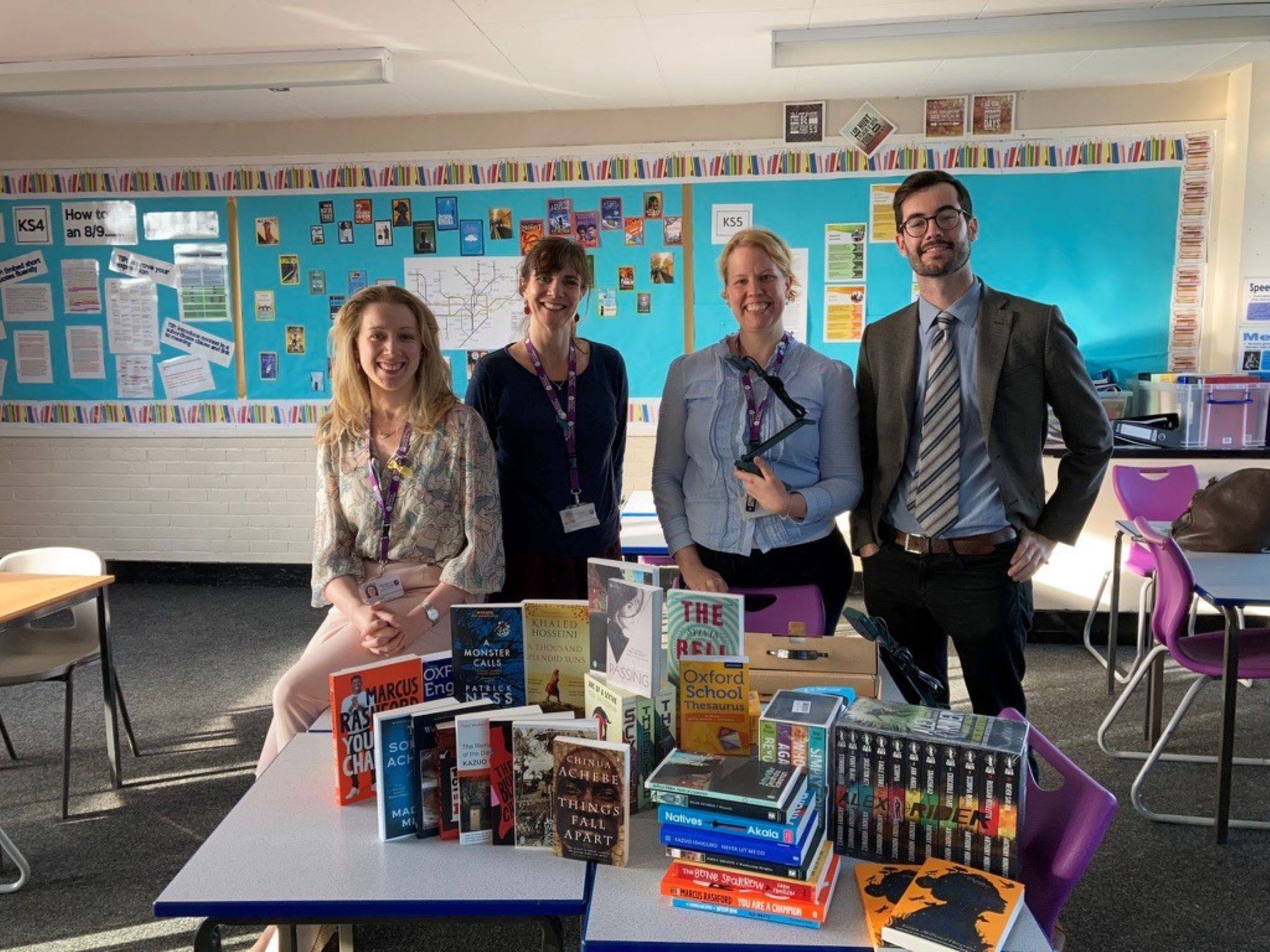
Literacy at CSGS
At CSGS, we believe that a pupil’s literacy is the key to their educational progress and personal development.
Reading in lessons
Reading is the gateway to the curriculum and is the means through which all subjects are studied. As such, it is important we ensure that every student has the reading skills they need to achieve their goals and lead happy and fulfilling lives. In lessons, students are taught new content using high quality, academic texts. They are taught to read, speak and write using academic vocabulary. Staff are acutely aware of the importance of vocabulary, and we use a range of consistent methods to teach students new academic language. Over the next year, we will be working on producing the ‘CSGS vocabulary booklet’ for students, which will comprise of all the key terminology for each subject in one place with suggested ways in which students can perfect their use of such language.
Reading in form time
As part of our RESPECT form time programme, every Wednesday students are encouraged to use form time to read. At KS3, form groups read a selected text together which links thematically to the PSHE focus for the year.
Reading for pleasure
At KS3, our students have a library lesson once a fortnight. This allows students time to devote to reading their own books and ensures they have access to our library resources. To support students when they are choosing books, we have a range of reading lists on the library site (Oliver). We also run competitions throughout the year to encourage our best readers to read a great range of literature and non-fiction. For instance, we have our CSGS literature line map, which resembles the underground map except each line represents a different genre. Students in year 7 are encouraged to read as many books as possible and leave book reviews on our padlet site. At the end of the year, the student who has engaged the most with the initiative receives a prize. Last year, the main prize was a kindle!
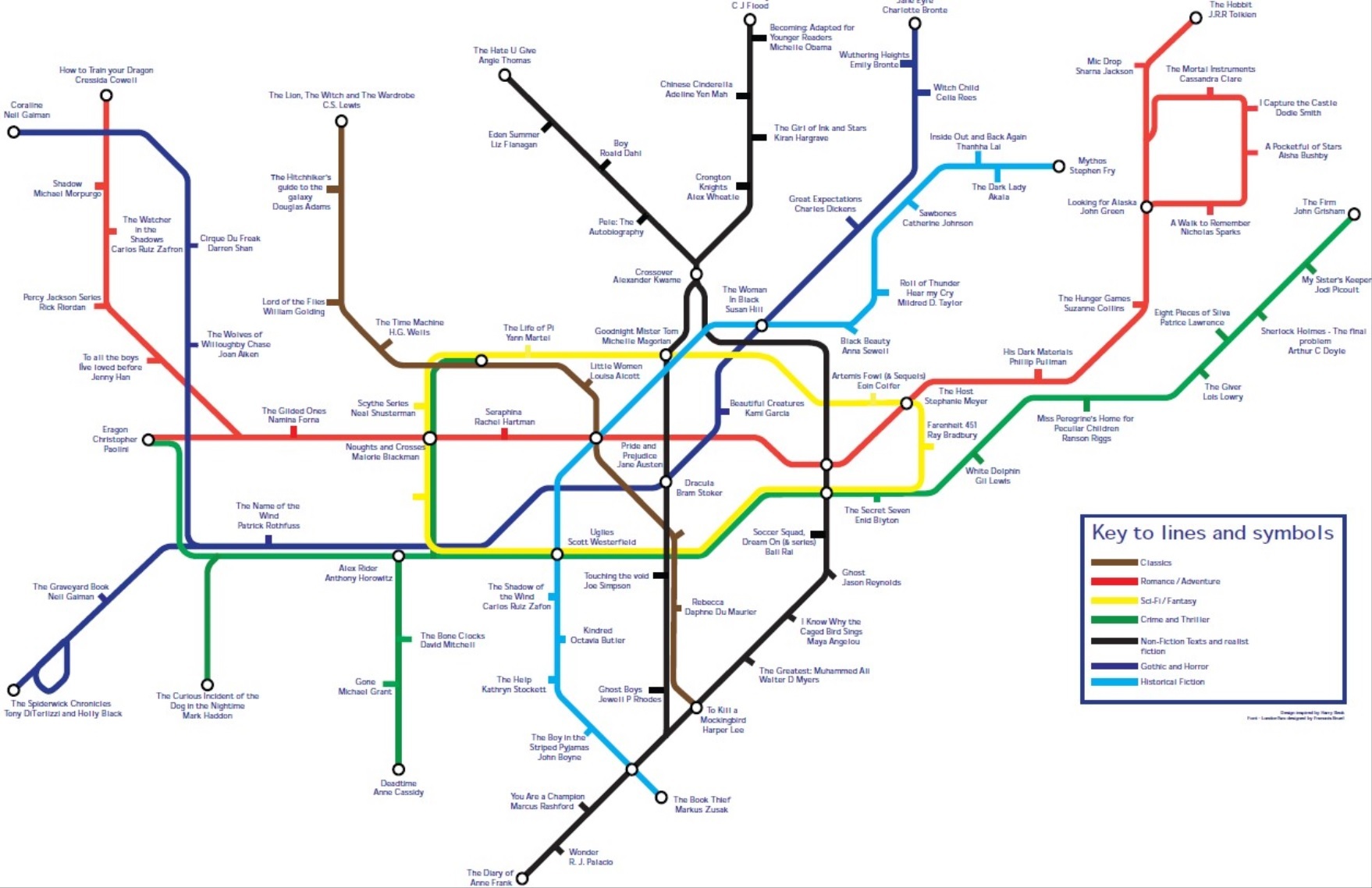
Reading across the curriculum
Recently, our Curriculum Leaders have worked collaboratively with the Head of English and our Librarian to create subject-specific reading lists. These lists are displayed on posters in every classroom and encourage students to see that reading is not an exclusively ‘English’ pastime but can enrich their understanding of a range of subjects. These lists are just an entry point for students, suggesting a few select titles they may find interesting – our curriculum leaders have lots of further recommendations should these lists whet their appetite. The full list of subject-specific titles can be found HERE. We have ensured there are copies of every text in the library and in future, we will offer competitive prizes to those who have read the most books by the end of the year.
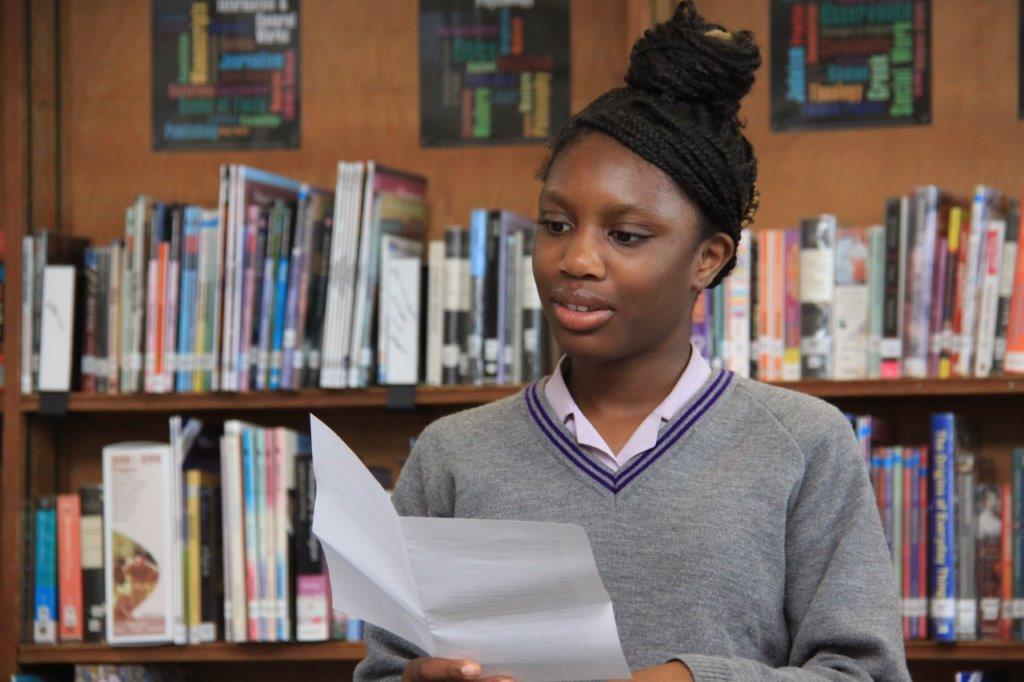
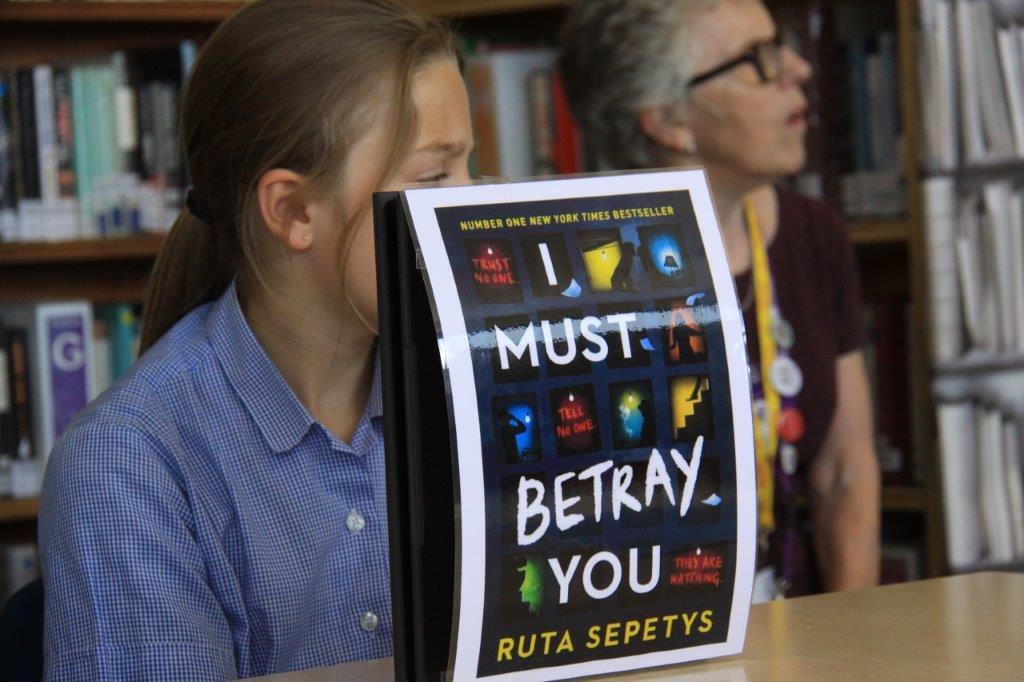
Special events and projects
At CSGS, we promote literacy all year round, whether that be by setting up student ‘Book Nooks’ where pupils can read quietly during break and lunch, or by offering students up-to-date newspaper articles in the canteen to get them thinking while they eat. As literacy is at the heart of what we do, we aim to provide plenty of opportunities for students to read. In March, we consolidate this by having a special celebration of reading on World Book Day. This involves a range of activities taking place:
- A school-wide book swap. In the weeks leading up to World Book Day, students are encouraged to bring in a book they have loved but will no longer read and donate it to our book swap. On the day, students can come and exchange a token for a book. Last year, some students donated so many books they went home with a stack of new texts on the day, and it is wonderful to hear so many students discussing which books they have enjoyed as they mill around the room recommending tomes to one another.
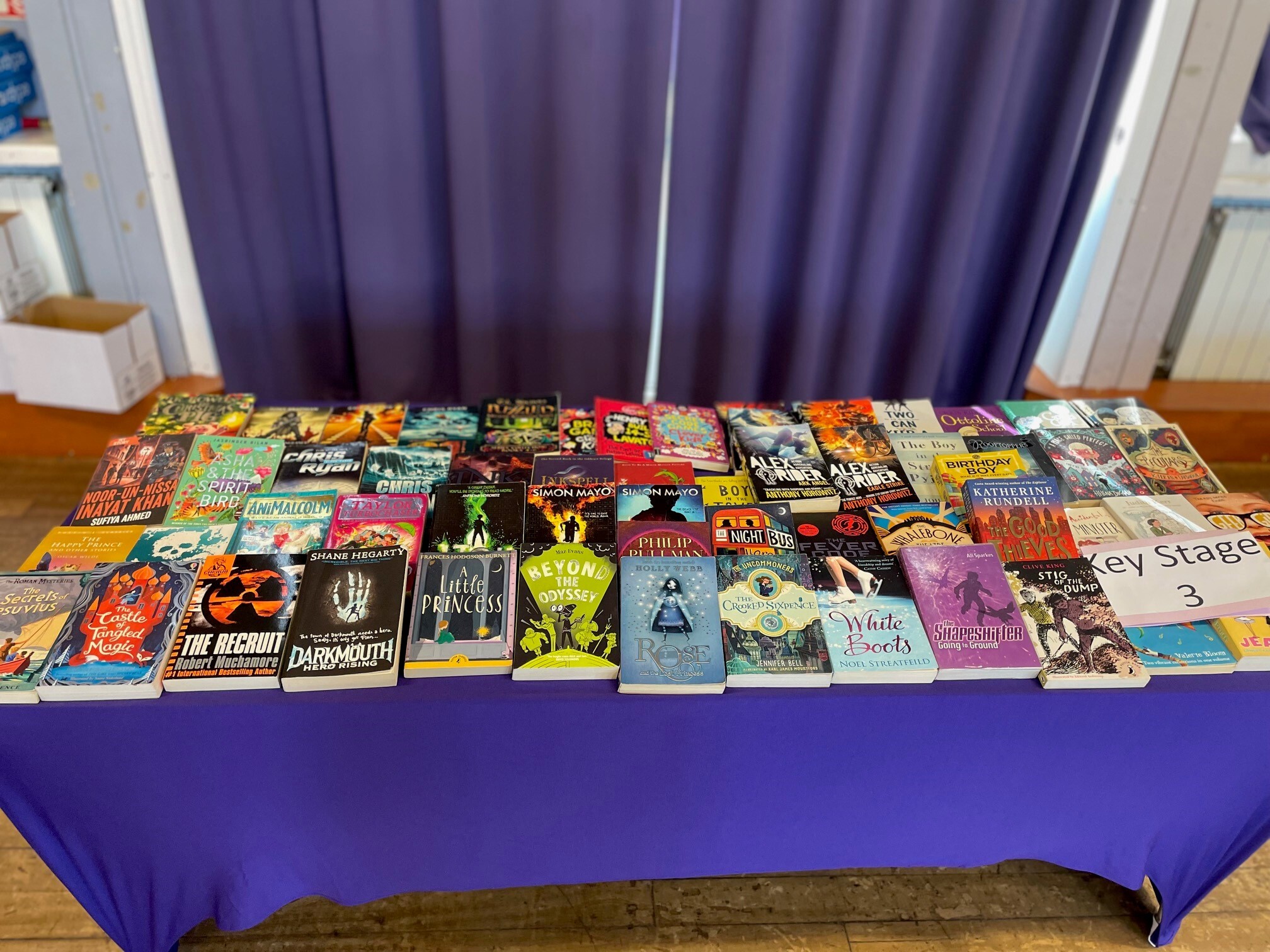
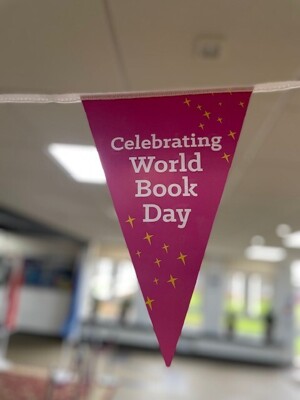
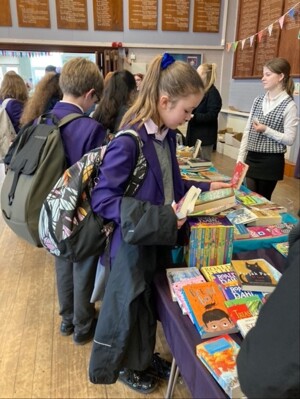
- A cake sale to raise funds for the library. On the day, we facilitate a cake sale with our wonderful PA. Students are encouraged to bake something for the occasion and we offer rewards for anyone who manages to create a cake that is book related.
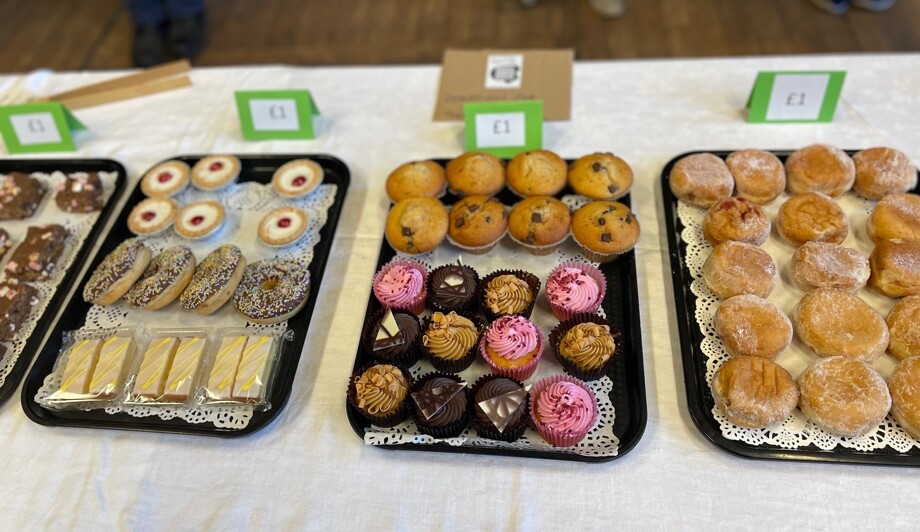
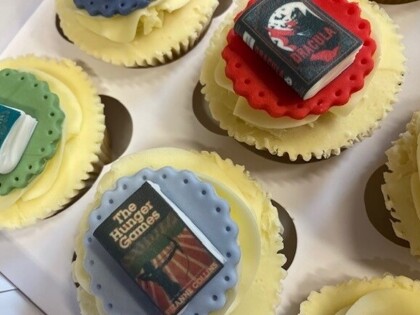
- Author visits. We know that author visits have a lasting impression on students, often igniting their imaginations and allowing them to see the importance of reading in the wider world. The week of World Book Day, we aim to have authors and poets visit and speak with students about the power of the written word. Last year, we invited the wonderful Alex Wheatle to the school. He shared his inspiring story with students and explained what it was like to have his literary journey turned into a short film by Steve McQueen (HERE). To find out more, please read through the interview he gave our Chronicle team. Past visits include a special talk from renowned author and historian David Olusoga and a reading and talk from CILIP Carnegie Medal winner Anthony McGowan.

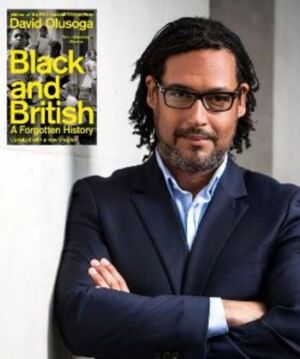
Supporting students who are struggling with reading
To ensure we are supporting all students with their literacy, we use the New Group Reading Test with students in KS3. This allows us to ascertain reading ages and identify if there are any issues with different aspects of reading. Should a student have a particularly low age or a problem with decoding or phonics, we will inform parents and offer reading intervention one to one until the obstacle to reading has been removed. This intensive intervention is then followed up with a more light-touch monitoring of progress, which may involve the student having one to one time with our librarian or receiving a bespoke reading list cultivated to their interests.
We understand that even though a student may have a high reading age, they may fall out of love with reading in secondary school and so we do our best to promote the benefits of reading at every turn. If parents are looking for a way to support this at home, then why not consult our guide, outlining how to reach reluctant readers.
General reading lists
Aside from our subject specific reading lists, we have generic reading lists for each key stage – please do let us know if you think we need to add any new books to our recommended reads!
Key Stage 3 Recommended Reading List